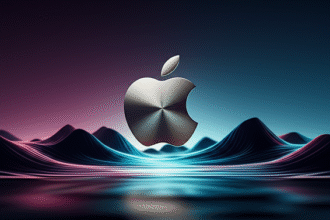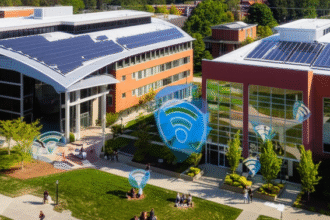In recent years, Tesla has established itself not just as a leading electric vehicle manufacturer but also as a powerhouse of innovation in information technology and digital transformation. The company’s commitment to pushing the boundaries of technology is not just limited to its vehicles but extends to various facets of the digital landscape.
Revolutionizing Transportation and Technology
Founded in 2003, Tesla Inc. has always aimed to accelerate the world’s transition to sustainable energy. This mission has led to numerous innovative practices, utilizing advanced technology not only in the automotive sector but in energy production, storage, and distribution. Tesla’s vehicles are equipped with cutting-edge technology including sophisticated battery systems, AI algorithms for autonomous driving, and over-the-air updates, which continuously improve functionality and performance.
The Impact of AI and Automation
Central to Tesla’s innovation strategy is the integration of AI and automation technologies. Tesla’s Autopilot feature exemplifies how AI is utilized to improve driver safety and convenience. Additionally, the production facilities employ automated systems that increase efficiency and scale, positioning Tesla as a formidable player in both automotive manufacturing and AI development. By implementing these technologies, Tesla not only optimizes its operational capabilities but also sets standards across industries.
Sustainability and Energy Solutions
Beyond automotive innovation, Tesla has made strides in renewable energy solutions through its products like Solar Roof and Powerwall. These integrated systems allow consumers to generate, store, and consume their energy more efficiently. The synergy between electric vehicles and energy products creates a cohesive ecosystem that reduces dependence on fossil fuels, showcasing how technology can contribute to sustainability.
Driving Software Innovations
Another significant aspect of Tesla’s innovation is its software development. Tesla’s software team is continuously developing new features such as Full Self-Driving (FSD) capabilities, which provide a glimpse into the future of autonomous transportation. The ability to push software updates to vehicles helps Tesla remain competitive and responsive to consumer needs, fostering a user-centric approach in vehicle ownership.
Challenges and Future Prospects
While Tesla’s journey positions it as an innovator in the tech and automotive industries, it faces challenges such as regulatory hurdles, competition from established automotive giants, and public perception of electric vehicles. However, Tesla’s resilience and innovative spirit continue to inspire industry-wide changes. As the company expands its market share and invests in future technologies like robotics and AI, it remains poised to lead the ongoing digital transformation.
Related Insights
- Impact of App Stocks on Digital Transformation
- Project 2025: Driving Digital Transformation
- OpenAI Stock Rise – Future AI Technology
Conclusion: The Future is Electric and Intelligent
Tesla’s integration of innovative technologies illustrates a broader trend of digital transformation across industries. By setting high standards for electric vehicles and energy solutions, Tesla not only influences consumer choices but also paves the way for future innovations in technology and sustainable practices. As Tesla continues to expand its mission, it reinforces the notion that the future of transportation and technology is indeed electric and intelligent.








